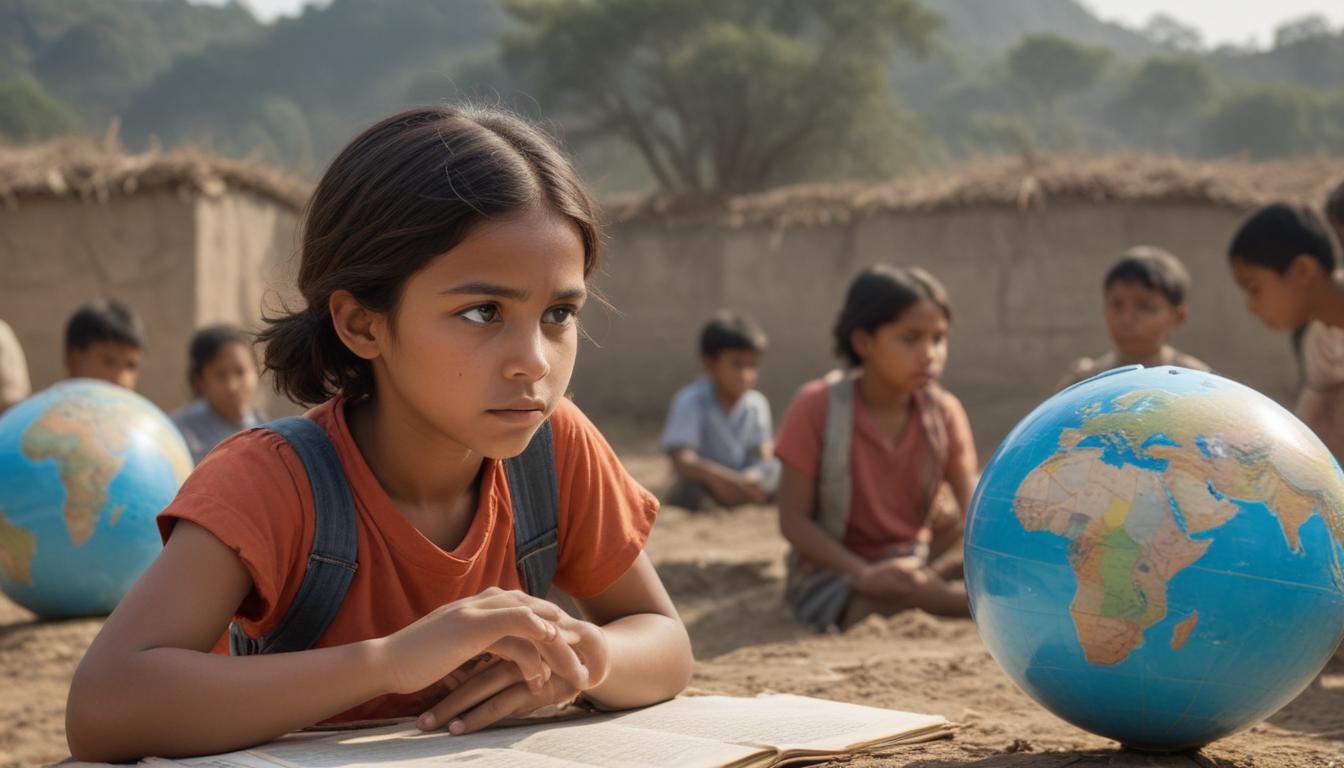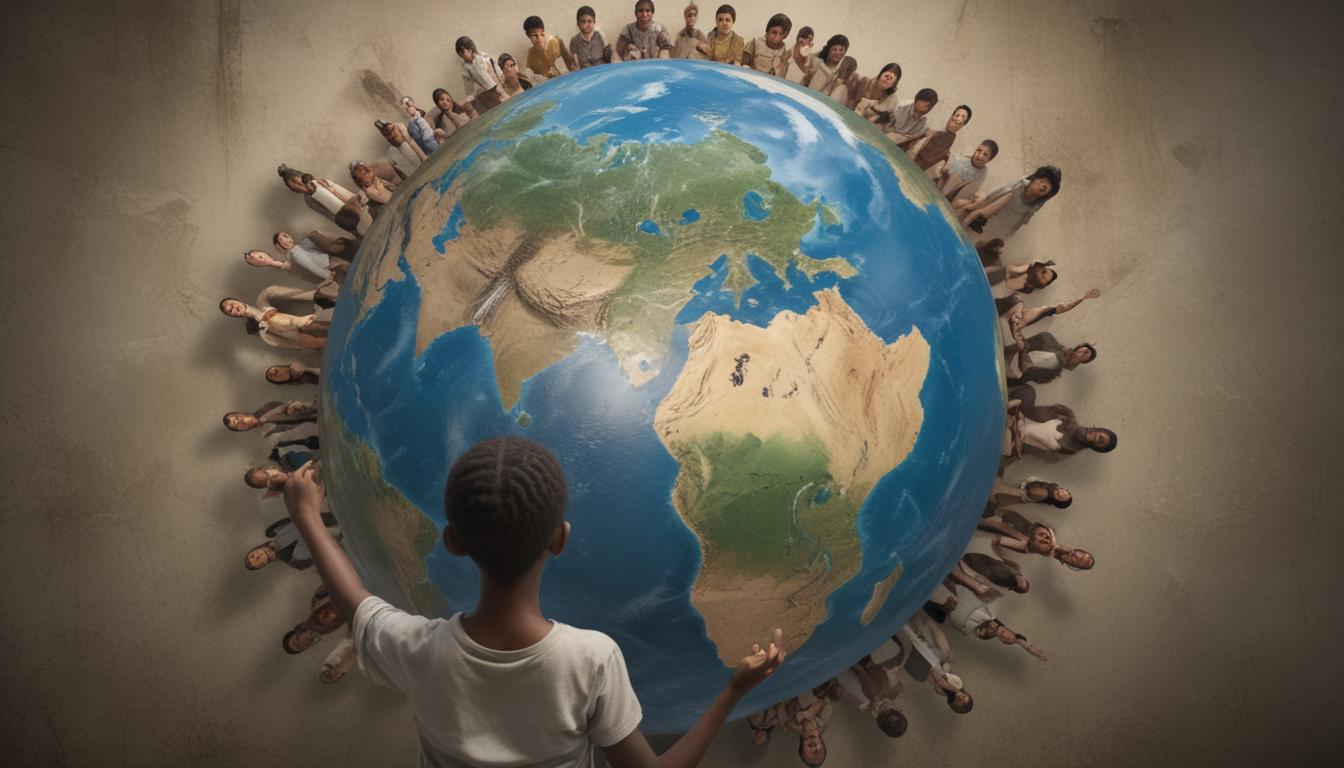Now Reading: Understanding Our World A Global Citizen Guide
-
01
Understanding Our World A Global Citizen Guide
Understanding Our World A Global Citizen Guide

Global Citizenship Education Understanding Our Interconnected World
Do you ever feel overwhelmed by the state of the world? From breaking news about climate change to complex social issues and far-off conflicts, it’s easy to feel small and powerless. You see the problems, you feel the weight of them, but the path to making a real difference seems unclear. You are not alone in feeling this way.
What if there was a way to reframe your perspective? A way to transform that feeling of helplessness into a sense of empowerment and connection? The solution is Global Citizenship Education (GCED). It is a powerful approach to learning and living that equips you with the understanding, skills, and motivation to navigate our complex world and become a positive force for change.
What Exactly is Global Citizenship Education
Global Citizenship Education is not just about memorizing countries and capitals. It is a transformative, lifelong learning process. It goes beyond the classroom to help people of all ages understand the interconnected nature of our world and their place within it.
At its core, GCED is about developing a sense of belonging to a broader community and a common humanity. It emphasizes political, economic, social, and cultural interdependency and interconnectedness between the local, the national, and the global. It is about building a better future for everyone.

The Core Pillars of Global Citizenship
To fully grasp the concept, it helps to break Global Citizenship Education down into three essential pillars. These pillars work together to build a well-rounded, engaged, and effective global citizen.
Knowledge and Understanding
The first step is building a foundation of knowledge. A global citizen seeks to understand how the world works. This means learning about global governance systems, human rights, geopolitics, and the root causes of inequality and poverty. It also involves exploring different cultures, histories, and perspectives to challenge assumptions and stereotypes. A key part of this pillar is understanding global challenges like the UN’s Sustainable Development Goals (SDGs), which provide a shared blueprint for peace and prosperity for people and the planet.
Skills for a Globalized World
Knowledge alone is not enough. Global Citizenship Education focuses on developing crucial skills that allow you to act upon that knowledge effectively. These are the skills needed to thrive in the 21st century.
They include:
- Critical Thinking The ability to analyze information from different sources, identify bias, and form your own informed opinions.
- Communication The capacity to articulate ideas clearly and listen respectfully to others, especially those with different viewpoints.
- Collaboration The skill of working effectively with diverse groups of people to achieve a common goal.
- Problem Solving The creativity and resilience to find innovative solutions for local and global challenges.
Values of a Global Citizen
The final pillar is perhaps the most important. It is the ethical and moral compass that guides a global citizen’s actions. These values are not dictated but rather nurtured through reflection and experience. They often include empathy, solidarity with people everywhere, a deep respect for diversity, and a strong commitment to social justice, equality, and environmental sustainability.
Why Does Global Citizenship Education Matter Now More Than Ever
In today’s world, the principles of GCED are not just beneficial they are essential.
It Fosters Empathy in a Divided World
We are bombarded by narratives that seek to divide us. Global Citizenship Education acts as a powerful antidote. By encouraging us to learn about others and step into their shoes, it builds bridges of understanding and empathy. It helps us see the humanity in everyone, regardless of their nationality, religion, or background.
It Equips Us to Tackle Global Challenges
Issues like climate change, pandemics, and economic instability do not respect national borders. They require global cooperation. GCED empowers individuals with the knowledge and motivation to support and contribute to collective solutions, making them active participants in creating a more sustainable and equitable world for all.
It Prepares Students for the Future Workforce
The modern workplace is increasingly global. Employers are actively seeking candidates who can collaborate with international teams, understand diverse markets, and navigate cross-cultural communication. The skills fostered by GCED are no longer “soft skills”—they are critical career competencies.
How You Can Become a Better Global Citizen
Global citizenship is a journey, not a destination. You can start taking meaningful steps today.
Stay Informed Responsibly
Make an effort to consume news and information from a variety of international sources. Be critical of what you read and watch. Ask yourself whose voice is being heard and whose is missing?
Engage in Your Local Community
The concept of “think globally, act locally” is key. Volunteer for a local organization that addresses an issue you care about, whether it’s environmental protection, food insecurity, or refugee support. Your local actions contribute to a global impact.
Learn About a New Culture
You don’t need to buy a plane ticket. Read a book by an international author, watch a foreign film, try cooking a new cuisine, or use a language-learning app. Every effort to understand another culture expands your worldview.
Support Ethical and Sustainable Businesses
Your power as a consumer is immense. Research the brands you buy from. Choose to support companies that use sustainable practices, pay fair wages, and have an ethical supply chain.
By embracing the principles of Global Citizenship Education, you are not just learning about the world you are actively shaping it. You are moving from a passive observer to an engaged participant, ready to contribute to a more just, peaceful, and sustainable future for everyone.

































